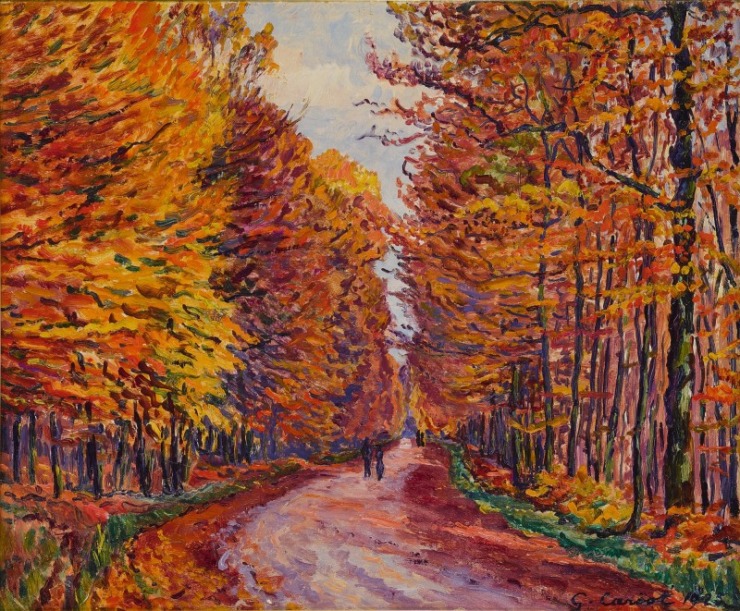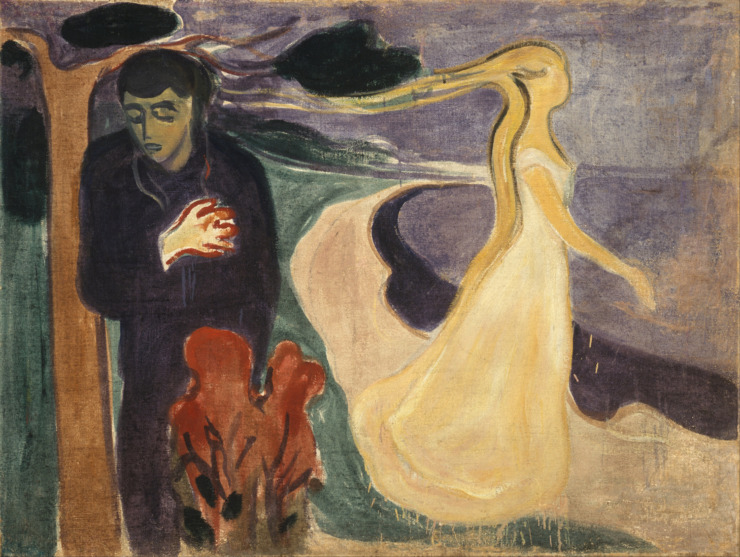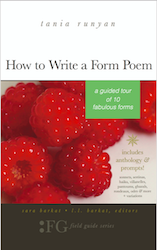Ephemera
“Your eyes that once were never weary of mine
“Are bowed in sorrow under pendulous lids,
“Because our love is waning.”
And then she:
“Although our love is waning, let us stand
“By the lone border of the lake once more,
“Together in that hour of gentleness
“When the poor tired child, Passion, falls asleep:
“How far away the stars seem, and how far
“Is our first kiss, and ah, how old my heart!”
Pensive they paced along the faded leaves,
While slowly he whose hand held hers replied:
“Passion has often worn our wandering hearts.”
The woods were round them, and the yellow leaves
Fell like faint meteors in the gloom, and once
A rabbit old and lame limped down the path;
Autumn was over him: and now they stood
On the lone border of the lake once more:
Turning, he saw that she had thrust dead leaves
Gathered in silence, dewy as her eyes,
In bosom and hair.
“Ah, do not mourn,” he said,
“That we are tired, for other loves await us;
“Hate on and love through unrepining hours.
“Before us lies eternity; our souls
“Are love, and a continual farewell.”
-WB Yeats
Enjoy Artistic Representations of “Ephemera” by WB Yeats

GEORGENBORN, LA ROUTE DE WIESBADEN EN FORÊT, AUTOMNE
by Gustave Cariot, 1925.

Separation by Edvard Munch, 1896.
Listen to these Readings of “Ephemera”
Listen to these Musical Interpretations of “Ephemera” by WB Yeats
About W.B. Yeats
William Butler Yeats was born in 1865 in Dublin into a family of the Protestant Anglo-Irish landowning class. He lived in Dublin and London during his growing up years. He was very much affected by the politics of the time, as he was a young adult when the protestant minority in power began to be displaced by the predominantly Catholic nationalist movement.
Yeats studied law for a time but eventually moved to London to study art. He was an accomplished playwright, and a founder of the Irish Theatre which was later to become the Abbey Theatre. While he is better known for his poetry, Yeats was awarded the Nobel Prize for Literature in 1923 more for his theatrical works than his verse. He was the first Irishman to be awarded the prize.
His first collection of poems was published in 1889, and there is strong evidence of the influence of Edmund Spenser and Percy Bysshe Shelley. Later, his poetry became more rooted in realism and the physical, with influence of Ezra Pound and William Blake apparent. Common themes in his poetry include mysticism, spiritualism, the occult and Irish identity and nationalism.
Yeats was appointed to the Irish senate in 1922. He was married, but had an ongoing relationship of sorts with a former love, Irish activist and revolutionary Maud Gonne. Known as one of the greatest poets of the 20th century, Yeats died in 1939.
That’s it for Ephemera!
BUY ‘HOW TO WRITE A FORM POEM’ NOW!
